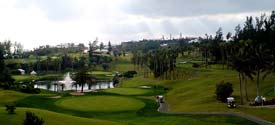In January 2003, a Royal Gazette article reported that 57 percent of Bermudians were overweight. This is a level comparable to Scotland’s population, often cited as Europe’s most obese people! Our diabetes rates are also sky high. It is clear we need to educate ourselves about what we eat, rather than relying on a doctor to fix us and on insurance to pay for our treatment. We need to take responsibility for our own bodies and what we put into them, so we can avoid sickness in the first place.
We are also beginning to understand the environmental implications of what we eat – not just things like the mercury we consume in fish, but the consequences of choosing certain products. An organic lettuce driven across America and shipped to Bermuda, for example, might be healthy to eat. But in reality it has created a massive carbon footprint from all the travelling it has done in comparison to a fresh lettuce bought at a farm stand. In fact, Europe is removing the organic classification for any item that has been air freighted.
 In addition, we are not being fully informed about the ingredients of our food. For example, genetically modified (GM) crops are being used in many cereals like Cheerios. In the US, there is no legal requirement for companies to state that GM crops are being used in many ‘healthy’ foods. In Europe GM food, also known as frankenfood, was rejected by consumers and is used mainly for animal feed.
In addition, we are not being fully informed about the ingredients of our food. For example, genetically modified (GM) crops are being used in many cereals like Cheerios. In the US, there is no legal requirement for companies to state that GM crops are being used in many ‘healthy’ foods. In Europe GM food, also known as frankenfood, was rejected by consumers and is used mainly for animal feed.
The companies that produce GM seeds intentionally create seeds that are unable to reproduce, meaning the farmer has to buy seeds every year from the US corporations. Not such a problem in the US, but certainly a burden on poor farmers in the Third World who now have to re-invest their profits to buy seeds, which in previous years seeds were simply a part of their crop.
This increasing monoculture of crops (all from the same seed) is also reducing biodiversity on the planet, preventing local grains from being grown and endangering their continued existence.
 Pesticide regulation on the island is another issue that Greenrock is exploring. Pesticide use is not as strictly regulated in Bermuda as in other countries, so while we recommend eating local, we need to look at ways to measure standards. We do not have a clear organic certification, and if we did it might be hard to achieve with fields close to golf courses receiving pesticides and fertilizers through air or water contamination.
Pesticide regulation on the island is another issue that Greenrock is exploring. Pesticide use is not as strictly regulated in Bermuda as in other countries, so while we recommend eating local, we need to look at ways to measure standards. We do not have a clear organic certification, and if we did it might be hard to achieve with fields close to golf courses receiving pesticides and fertilizers through air or water contamination.
To learn more about Greenrock’s Healthy Harvest Bermuda project, visit the website, email This email address is being protected from spambots. You need JavaScript enabled to view it. or call 747-7625.

